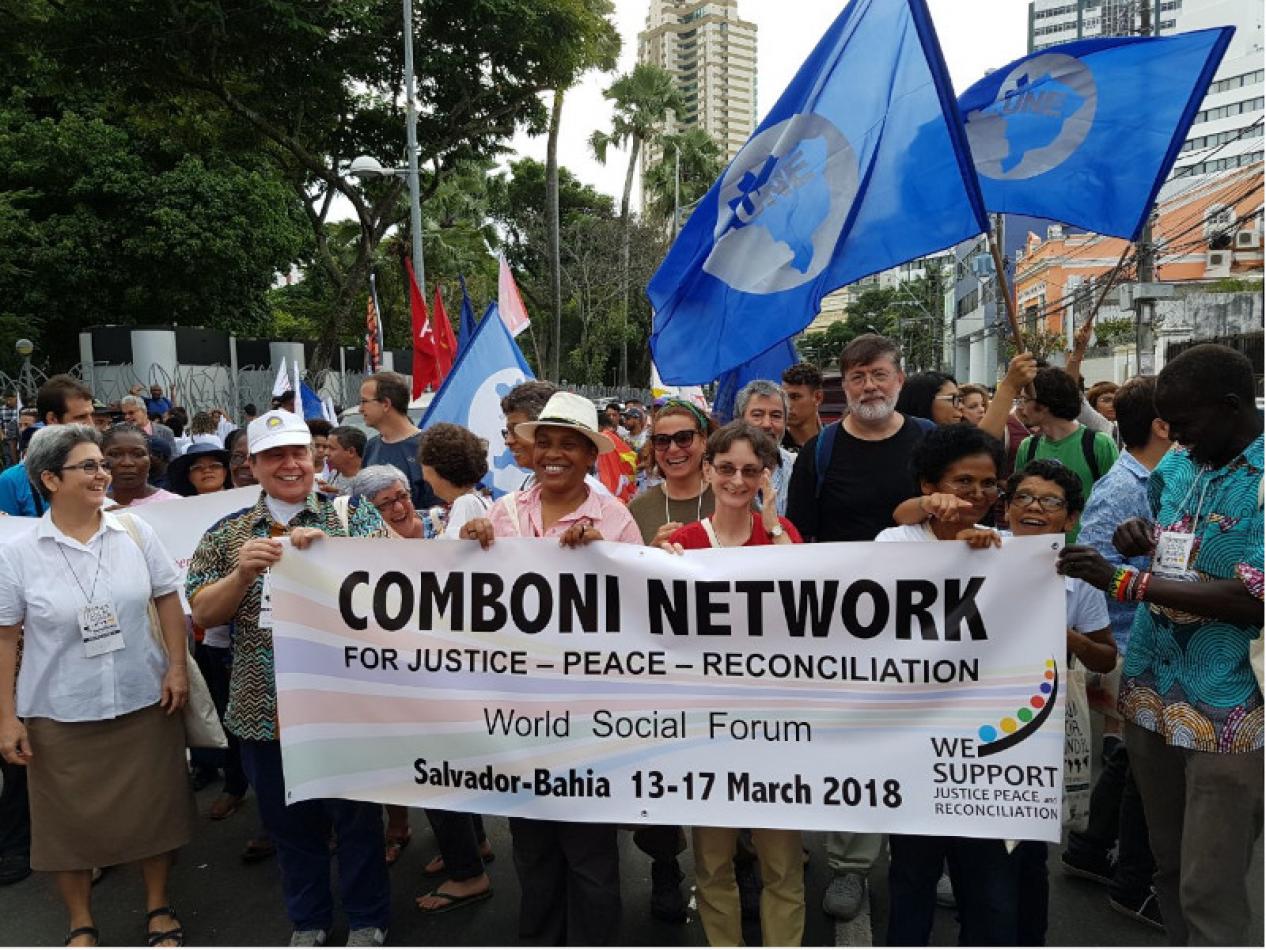Daniel Comboni
Comboni Missionaries
Institutional area
Other links
Newsletter
Saturday, March 12, 2022
A Kenyan parliamentarian of Islamic faith participated several times in the weekly prayer of the Catholic group. One day I asked him why he joined our group rather than a Muslim group. He replied that whether you call him Yahweh or Allah, the one who answers is always the one God. I found this to be an important clarification, and a solid basis on which to build a fruitful dialogue with members of different religions.
Certainly faith, and therefore the relationship with God, can be an excellent meeting place for dialogue between different faiths, but above all for building a vision of planetary justice.
Pope Francis emphasises the importance of the spiritual dimension of our common life in number 273 by quoting Pope John Paul II’s letter Centesimus Annus: “In this regard, I wish to cite the following memorable statement: “If there is no transcendent truth, in obedience to which man achieves his full identity, then there is no sure principle for guaranteeing just relations between people. Their self-interest as a class, group or nation would inevitably set them in opposition to one another. If one does not acknowledge transcendent truth, then the force of power takes over, and each person tends to make full use of the means at his disposal in order to impose his own interests or his own opinion, with no regard for the rights of others”.
Gathering around a common God undoubtedly leads to the need to build together a society that respects all human beings; without forgetting our relationship with the environment around us. Building a society based on justice would necessarily become the goal of the community of believers. This path of dialogue between religions, and its application to human reality, will not be easy. One must take into account the journey that some faiths will have to make to rediscover the social dimension of their belief.
It is no coincidence that Francis points out that the Catholic Church reserves the right to intervene in the political life of society. It could not be otherwise. Christ invested his disciples with the mission to build the new society, based on justice: the Kingdom. This mission prevents Christians from separating themselves from human affairs. Instead, the faithful must be a protagonist in society, committing himself so that society moves towards ever clearer choices of justice.
A specific area that is important today is that of choices linked to the economy. The economy now also plays a decisive role in politics. Large transnational corporations can move huge amounts of capital, influencing decisions, causing and sustaining tensions and conflicts. One case in point is the situation in DR Congo. In many areas of the country, social insecurity is fuelled by mining companies, thus controlling the country, they administer entire regions to their advantage, and manage the movements of the population to promote employment in their favour.
Dialogue between religions must be able to go beyond spiritual confrontation and theological sharing. Dialogue will be fruitful when it is able to involve believers in social commitment to justice.
Fr. Joseph Caramazza MCCJ
[combonimission.net]




